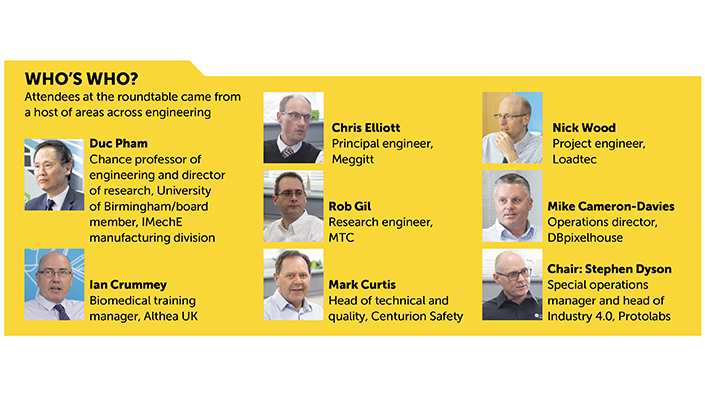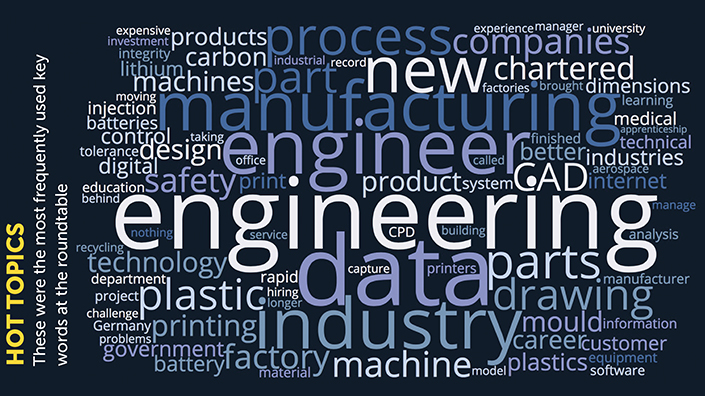Sponsored features
In August, Professional Engineering magazine and Protolabs brought together senior people from all areas of the engineering industry to share their thoughts on the future of manufacturing, and engineering as a whole, in a wide-ranging roundtable discussion hosted at Protolabs’ UK head office near Telford.
Stephen Dyson, special operations manager and head of Industry 4.0 at Protolabs, kicked off the discussion with a question about the fourth Industrial Revolution and what it meant to the attendees. “It’s a new name for something that has been around for a number of years,” said Duc Pham, professor of engineering and director of research at the University of Birmingham, and a board member of the IMechE manufacturing division. “The technologies that make up Industry 4.0 – robotics, AI, the internet itself – they have been around and people have just assembled them.”
Small steps
Mike Cameron-Davies, who is operations director at DBpixelhouse but spent many years working in the automotive industry, agreed. “I think it’s important to recognise that this is evolution, not revolution,” he said.
And it has been slow progress for many companies. “Much of the UK isn’t even in Industry 3.0,” quipped Chris Elliott, a principal engineer in the aerospace division at Meggitt. Mark Curtis, head of technical and quality at Centurion Safety, described working with a production line that has barely changed since the 1980s. “I’ve got legacy machines that don’t talk to each other, and the setting is done by the individual tool-setter,” he said. “We are so far behind.”

But awareness is growing at a faster and faster rate, argued Rob Gil, research engineer at the Manufacturing Technology Centre. Between 2009 and 2018, awareness of digital technology in industry increased from 9% to 30% – but this jumped to 40% in a survey conducted earlier this year.
Several attendees were using 3D-printing techniques in their organisations, albeit on a small scale. Curtis, who works for a company that makes safety equipment, uses additive manufacturing for prototyping, for which it is “fantastic” – but has found that the integrity of printed plastic components is not sufficient for the firm’s requirements. “You’ve got that trade-off,” said Dyson.Elliott argued that additive manufacturing doesn’t quite know what it is yet and pointed out that the full adoption of those kinds of techniques may require the way products are designed to be changed. Eventually, it offers the promise of mass customisation and less waste. “Nothing’s going to sit on a shelf anywhere, because everyone’s going to order their bits, so actually there’s less waste,” said Nick Wood, a project engineer at Loadtec.
Skills and data
One of the problems attendees have faced is finding people with the right skills to guide them through the challenges of the fourth Industrial Revolution. “The skills gap is massive,” said Ian Crummey, biomedical training manager at Althea UK, who added that university graduates in engineering sometimes lacked the practical skills required for entry-level jobs in the industry.

Companies are learning to be less protective over their data, which has been closely guarded in the past, but has to be shared with suppliers in the right format to enable full integration of digital manufacturing techniques and the Internet of Things on the factory floor. Similarly, in certain industries such as aerospace, introducing new manufacturing techniques midway through a product cycle can be prohibitively expensive because of the red tape involved.
On the whole attendees were positive about the future of the manufacturing industry in the UK. The field stands on the cusp of a major change, with additive manufacturing, big data and automation identified as the key trends that will shape the future.
Content published by Professional Engineering does not necessarily represent the views of the Institution of Mechanical Engineers.